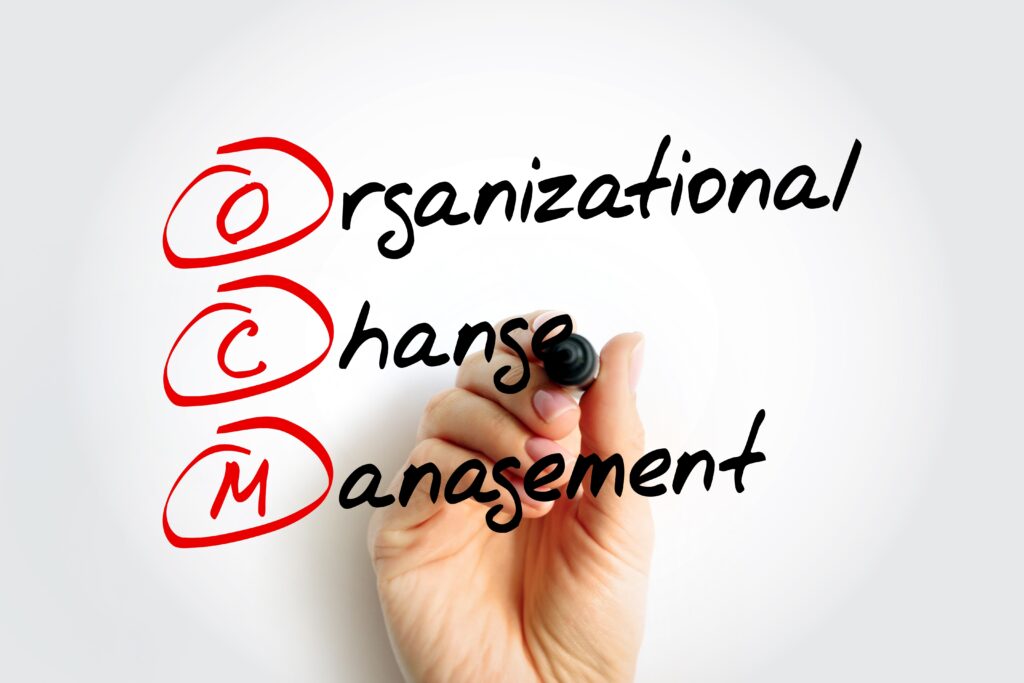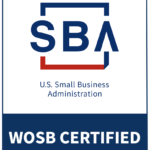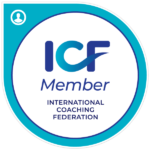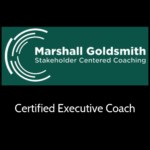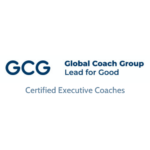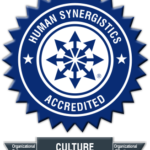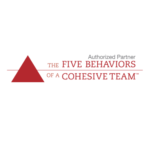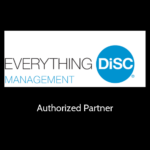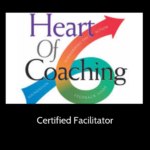Best Practices in Organizational Change Management
Written by: Lynn Whitesell, Managing Partner, Harris Whitesell Consulting
Organizational Change Management (OCM) plays an essential role for businesses in today’s rapidly evolving environment. OCM is a structured approach to managing the human side of change within an organization. It involves planning, implementing, and reinforcing changes to processes, systems, technologies, culture, and behaviors to achieve desired outcomes and minimize resistance.
The Need for Change
Change is the best antidote to stagnation – and the first precondition for growth. Organizations that do not change and adapt to evolving circumstances risk becoming obsolete. They stagnate and fail to innovate and lose relevance and market share. They fail to reach their strategic objectives. They lose employees and have difficulty finding talent to replace them, much less attract top talent or grow.
There are many compelling business drivers for change. Some of these include:
- Strategic direction changes
- Organizational priority shift
- Financial performance / profitability
- Market disruptions and shifts
- New leadership at the helm of the company or within its departments
- Technological advancements / new technologies / software updates / digital adoption
- Competitive pressures
- Customer expectations
- Internal restructuring
- Efficiency measures implementation
- New products or services
- Entering new markets
- Employee engagement / uptick in turnover
- Lack of a constructive culture and values system
- Current culture misaligned from ideal culture
- Declining organizational effectiveness
- Shifts in organizational team structure
- Adoption of new business models
- Regulatory compliance requirements
- Cybersecurity threats
- Globalization
- And more…
Embracing change and adopting a proactive approach to organizational development and innovation are essential for long-term success and sustainability.
Challenges of Change
It is vital that these change initiatives are successful. Unfortunately, change efforts often fail to achieve desired results.
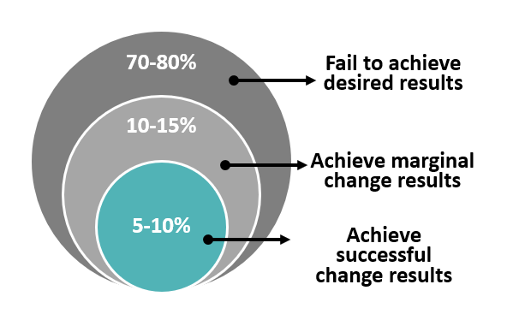
(Source Linkage, Inc.)
Some common challenges and pitfalls faced during change implementation include:
- Lack of leadership support and failure to “walk the talk”
- Lack of stakeholder engagement or involvement
- Employee resistance
- Poor communication
- Fear, anxiety and lack of trust
- Organization runs out of capacity (time)
- Lack of support for new behaviors (training/coaching)
- Lack of relevancy to employees
- Poor governance
- Believers and non-believers
- Strategic confusion
Especially worrisome is that managers themselves often resist change due to lack of awareness about and involvement in the change, loss of control or negative impact on job role, increased workload (perceived lack of time), culture of change resistance and past failures, and impact to their teams.
Benefits of Effective Change Management
Prioritizing change management practices allows organizations to navigate change more successfully, drive positive outcomes, and maintain a competitive edge in today’s dynamic business environment. Some advantages of implementing effective change management practices include:
- Increased employee engagement and active participation in the change effort
- Decreased employee resistance and turnover
- Reduced disruption and impact on productivity during the change process
- Faster adoption of new processes, technologies, and behaviors
- Smoother transition from current state to desired future state
- Enhanced organizational change agility and resilience
- Enhanced overall performance and productivity
- Change adoption and success
Furthermore, effective change management makes a significant difference achieving the overarching change project objectives, while remaining on time and under budget in doing so.
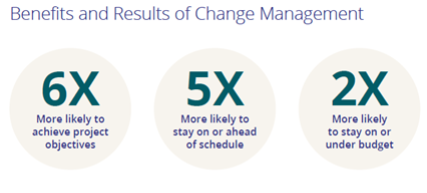
(Source Prosci®)
Key Principles of Change Management
Effective change management requires planning and a well-thought out and crafted Change Management Plan. The complexity of the change plan itself should be tailored to the specific needs, circumstances, and objectives of the change initiative. While some changes may require comprehensive, multi-faceted change management strategies, others may be straightforward and require less formal approaches. It is essential to assess the unique characteristics and drivers of each change initiative to determine the appropriate level of complexity for the change management plan.
Questions to consider when developing a change management plan include: Does the change impact many, or few? What is the organization’s previous experience with change – positive or negative? Is there a high level of resistance? What is the risk if the change effort fails? Is the scope and scale large or small? Is the timeline urgent or less time sensitive? Is the change adaptive (like upgrading a software system) or transformative (involving simultaneous shifts in mission, strategy, team structure, performance, or business processes).
Regardless of the complexity of the change, basic key principles of change management ring true – communication is paramount, stakeholder engagement is essential, leadership support is the catalyst, and employee concerns and resistance must be considered and addressed.
Change Management Plan
Change initiatives that include careful planning, and a well-crafted change management plan allows organizations to anticipate potential challenges, minimize risks, and maximize the likelihood of success. It provides a structured framework for setting objectives, defining strategies, and coordinating resources to effectively navigate transitions and achieve desired outcomes.
A basic change management plan for less complex or adaptive changes will contain these core components:
- Stakeholder Assessment – the process of identifying, analyzing, and prioritizing stakeholders who impact, are impacted by, or have an interest in the change initiative.
- Communication Plan – how information about a change initiative will be shared with stakeholders to build awareness, understanding, and support.
- Training Plan – the strategies and activities for equipping employees with the knowledge, skills, and capabilities needed to adapt to the change initiative.
- Implementation Plan – the specific actions, timelines, and responsibilities required to execute the change initiative successfully.
- Evaluation Plan – the methods and criteria for assessing the effectiveness and impact of the change initiative.
For complex and transformational change, the following change management plans components should be also considered:
- Sponsor Roadmap – key leadership sponsors, their roles and responsibilities, and the actions needed to engage and align them with the change effort to ensure its success.
- Coaching Plan – how coaching will be used to support individuals and teams in adapting to the change initiative.
- Resistance Management Plan – identifies potential sources of resistance to the change initiative and outlines strategies for addressing them effectively
- Reinforcement Plan – provides the strategies and activities for sustaining the change and embedding it into the organization’s culture and operational practices.
- Corrective Action Plan – a structured approach to address issues, challenges, or deviations from the intended course of the change initiative.
- After Action Review – a systematic evaluation process conducted after the completion of the change initiative to assess its effectiveness, identify lessons learned, and capture insights for future improvement.
Summary
With effective organizational change management, employees clearly understand and support the vision of the change and the change simply becomes “how we do things around here”. As a result, the organization experiences improved agility, resilience, and performance, enabling it to adapt to evolving market conditions and maintain a competitive edge.
~~~~~~~~~~~~~~~~~~~~~~~~~~~~~~~~~~~~~~~~~~~~~~~~~~~~~~~~~~~~~~~~~~~~~
Harris Whitesell Consulting, LLC is certified to utilize the renowned Prosci® change management methodology to help organizations manage change effectively. Our approach is centered around the ADKAR model (Awareness, Desire, Knowledge, Ability, Reinforcement) and focuses on building change management capabilities within organizations to drive successful outcomes during periods of transition.
For more information or to learn more about our Talent Management and Change Management services, contact Lynn Whitesell, Co-founder and Managing Partner of Harris Whitesell Consulting LLC and RYW Ventures LLC. Lynn is a Prosci® Certified Change Practitioner, complimenting her 35+ years as a successful Talent Management Executive providing world-class service in talent strategy and development, leadership solutions, organizational effectiveness, and Executive, Leadership, Team ad Performance Coaching and Development.

